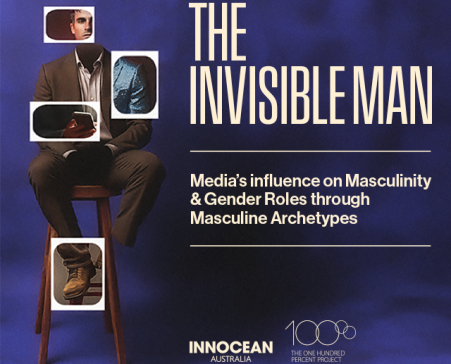Diversity of Thought Blog
Nobody loses in the move towards gender equality – Allan Ball, Director, White Ribbon Australia

The link between gender inequality and family and domestic violence is not a zero-sum proposition. Nobody loses in the move towards gender equality and those who seek to erode its progress are speaking from a place of fear, anxiety, shame, or misinformation.
In recent months, we’ve seen many discussions around Grace Tame, Brittany Higgins, and Lisa Wilkinson, much of it deriding them based on gendered expectations of male entitlement and how women ‘should’ behave.
In Australia, all genders are set to benefit, if all genders are afforded the equality right now, the sex listed on your birth certificate determines far more about your life journey than it should.
Australia has its collective head buried in the sand, and is failing to really look at or comprehend the total effect of gender inequality. Some work is being done on gender equality, but we need to speed this up.
Violence against intimate partners is one of these effects. Traditional notions about what it is to be a man and bad role models in the form of fathers, grandfathers, uncles, and other male caregivers are some of the root causes of men’s violence towards women and children alongside gender inequality.
Gender inequality is a constructed burden on Australian women that positions them below the gender pay gap, restricts them to certain roles, and ultimately limits opportunity. It also puts men in a box they can’t think or step outside of in fear of being ostracised for not being a ‘real man’.
Men want to be part of the solution to gender inequality. We know things won’t change unless men are heard on the issue.
As a society, we’ve allowed the underlying drivers of violence and disrespect to take root and become normalised. That (slightly) sexist joke; that banter between the blokes about a female colleague; talking over the top of a woman just because you can, or using opportunities for career advancement – they have all contributed to making Australia an unsafe and unequal community for women.
The results of the last Global Institute for Women’s Leadership Survey revealed that 30 per cent of Australian men believe “women who say that they were abused often make up or exaggerate claims of abuse or rape”.
In addition, Australia was second highest in the world, just behind Malaysia, when asked if it was acceptable to use sexist or misogynistic language online, with 14 per cent saying it was okay. The global average was eight per cent.
The report needs to serve as a national mirror, reflecting what Australian women have known to be true for decades. Is this a reality that Australian men can accept? Not me.
The ‘Aussie Bloke’ should be doing more to change these unacceptable set of statistics and shrink the gender equality gap. The key to making this happen is an urgent investment in primary prevention strategies to give men the education, tools and opportunities to get involved.
We know the discussion around women’s safety and gender equality can make some men uncomfortable, but discomfort doesn’t compare to living in fear of losing your life or livelihood. It isn’t nearly as crushing as the weight of feeling unsafe to walk down the street or catch a taxi alone. Unsafe to speak out about sexual harassment in the workplace. Unsafe with a phone being tracked.
It’s fine for males to be apprehensive about this topic; these are the times when we learn the most. Lean in to the discomfort, participate in the discussion, listen, learn, make errors, get back up, and keep going until you are confident in your ability to contribute to the change.
All of us have a responsibility to shift the gender-based attitudes and social practices that perpetuate violence and disrespect against women.
We can’t go on as a culture that tolerates disrespect, sexual harassment, assault, and rigid gender standards and power structures. It’s past time for us to band together behind broad-based initiatives, rethink our attitudes towards abuse and violence, and acknowledge that gender inequality exists and that males continue to gain from it.
We know the solutions, and at the very least, we need to:
- Challenge gender norms and behaviours in our workplaces.
- Re-write the experiences in our communities around gender roles and expectations.
- Understand the impact of our behaviours on children – they pick-up everything we say and do.
- Share the burden at home; my grandmother always taught me there are no boy jobs or girl jobs, just jobs, and the only thing that matters is doing them well.
The time is here to share the load, shift the burden and break free of our gender cage, because we know men’s violence and disrespect towards women feeds off gender inequality.

